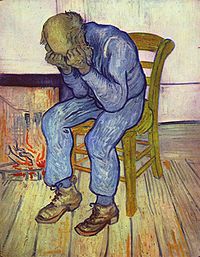 Here are my suggestions for some of the top articles in medicine in May 2012:
Here are my suggestions for some of the top articles in medicine in May 2012:The primary care doctor is a rapidly evolving species - and in the future could become an endangered one - NEJM http://goo.gl/BPcVB
Japanese rail workers have to pass a daily smile scan. Even a faux smile may increase happiness - Lancet http://goo.gl/DKwD9
Mental Illness: "Checklist diagnoses" cost less in time and money but fail compared to comprehensive evaluation - NEJM http://goo.gl/uOmcd
Only 50% of people with major depression in the general population receive any treatment for depression http://goo.gl/IfCCq
Natalizumab-Associated Progressive Multifocal Leukoencephalopathy (PML) - NEJM lists the risk factors http://goo.gl/J71JA
Azithromycin and the Risk of Cardiovascular Death - NEJM: 7 additional cardiovascular deaths per 1 million courses; patients in the highest decile of risk for cardiovascular disease had an estimated 245 additional cardiovascular deaths per 1 million courses. http://goo.gl/QITcP
Coffee consumption was inversely associated with total and cause-specific mortality. Whether this was a causal or associational finding cannot be determined - NEJM http://goo.gl/0EMJF
The Right Way to Try to Buy Happiness: By using money to create memories with your family, build things with your hands or even sleep more, you stand a pretty good chance of being happier. http://goo.gl/FO2I5
Up to 21% of adults will develop tinnitus - 2% of population have severely impaired quality of life because of it http://goo.gl/q1Yuc
Aspirin Prevents the Recurrence of Venous Thromboembolism, with no increase in risk of major bleeding - NEJM http://goo.gl/3sqDu
Women who worked the night shift were 40% more likely to develop breast cancer http://goo.gl/VQPQt
Hyperglycemia on admission predicts death in patients with community acquired pneumonia without pre-existing diabetes http://goo.gl/edAwQ
How can I treat toenail fungus? Ask Doctor K from Harvard Medical School http://goo.gl/9pdj9
The articles were selected from my Twitter and Google Reader streams. Please feel free to send suggestions for articles to clinicalcases@gmail.com and you will receive acknowledgement in the next edition of this publication.


